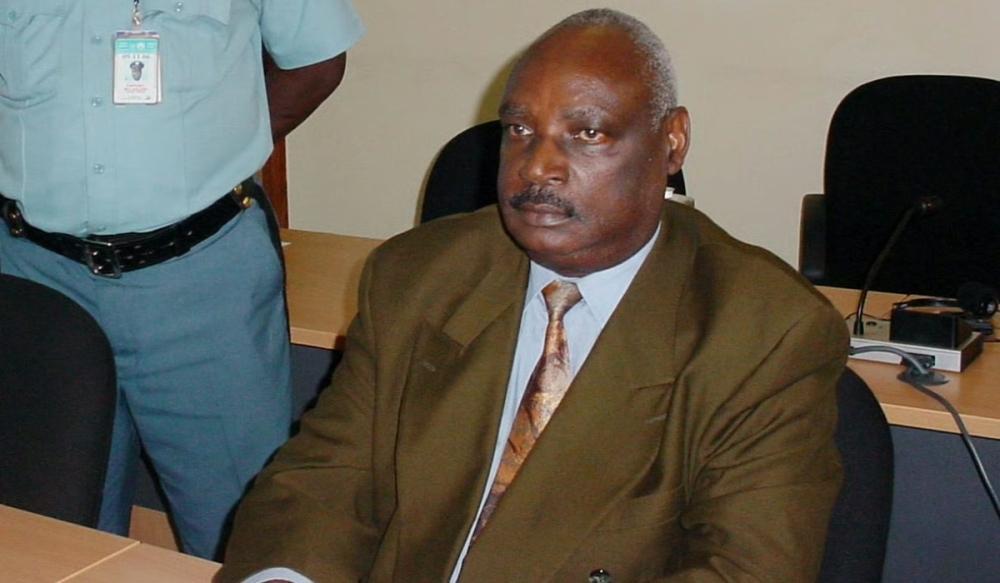Amani Athar
Africa-Press – Rwanda. Protais Zigiranyirazo—better known as Monsieur Zed or simply Mr. Z—is described on Wikipedia as a member of the Akazu, the elite inner circle of relatives and close allies of former President Juvénal Habyarimana who championed the extremist Hutu Power ideology. Though he was ultimately acquitted by human courts, one must ask: was he also acquitted by a higher moral authority? The answer is far from simple. In this article, we explore why divine justice may render a different verdict.
On August 3, 2025, Zigiranyirazo died at his residence in Niamey, Niger, where he had been living since his acquittal. Monsieur Zed was acquitted by the now defunct Appeals Chamber of the International Criminal Tribunal for Rwanda on November 16, 2009, as a chief architect of the 1994 Genocide against the Tutsi in Rwanda.
After his death, Mr. Z’s wealthy family deemed it inappropriate to bury him in Niger and instead sought to lay him to rest in Orléans, France. However, on August 26, a court ruled against the burial, citing concerns over threats to public order and internal security. An appeal heard two days later, on August 28, upheld the decision. To this day, Mr. Z remains without a grave. Despite the family’s legal challenges, the ruling was unequivocal: he would not be buried in Orléans. French authorities argued that the gravity of the crimes associated with him transcends death—and thus, even in death, certain honours remain denied.
The case of Mr. Z’s funeral evokes the ancient tragedy of Antigone, where King Creon forbids the burial of Polynices. When I was a French language teacher in Kampala, Uganda, among the texts I taught were Le Monde s’effondre by Chinua Achebe and Antigone, the classic Greek tragedy by Sophocles. In Antigone, the conflict is clear: divine law—eternal, unwritten moral truth—clashes with human law, embodied by Creon’s decree.
Polynices was the son of Oedipus and the brother of Eteocles, Antigone and Ismene. When Oedipus discovered that he killed his father and married his mother, he blinded himself and left the city of Thebes, leaving Polynices and Eteocles to rule jointly.
However, due to a curse placed upon them by Oedipus, their agreement soon collapsed, leading to a war for control of the kingdom. During the conflict, the two brothers killed each other in battle.
In Sophocles’ tragedy Antigone, the concept of burial is central to the plot. Antigone defies King Creon’s decree, which forbids funeral rites for her brother Polynices, who has been branded a traitor. She believes that proper burial is a sacred duty owed to both the gods and her family, and that denying it is a violation of divine law. Her determination to honour this obligation, despite the severe consequences, ultimately leads to her death. Though Antigone believes her actions are righteous in the eyes of the gods, she fails to consider that the curse placed upon her family by Oedipus—born from the immorality of their ancestors—still looms over them all.
In the case of Zigiranyirazo’s body, one might draw a parallel with that of Polynices in Sophocles’ Antigone.
Zigiranyirazo’s family—including Agathe Kanziga, the wife of former Rwandan President Juvénal Habyarimana—was implicated in crimes committed during the 1994 Genocide against the Tutsi. These actions contributed to the moral degradation of the family, much like the curse that haunted Oedipus’s lineage in Thebes. Just as King Creon denied Polynices a proper burial on the grounds of treason, one could interpret the refusal to bury Zigiranyirazo—by Mayor Serge Grouard of Orléans and, subsequently, the French Council of State, which upheld the decision on September 8—as a reflection of similar moral and legal condemnation.
A Kinyarwanda proverb says, “Rusigariye abaseka”, meaning that death should not be laughed at. Every family holds the sacred responsibility to honour their dead, ensuring that the soul can pass peacefully into the afterlife, rather than be left to suffer the dishonour or wrath of the gods. But what happens when it is the gods themselves who choose to dishonour the dead?
Have you ever heard the saying that “someone went to the dogs”? It means that a person has fallen into disgrace. It can refer to someone who is denied a proper burial—like Polynices or Zigiranyirazo. We cannot simply abandon the dead; without burial, because their bodies could be eaten by animals.
The Biblical Jezebel, the wife of King Ahab, did not receive a proper burial. After eunuchs threw her out of a window, Ahab ran her over with his chariot and then went inside to feast. While eating, he suddenly decided she deserved burial. But when men went to bury her, they found only parts of her skull and hands remained—the dogs had consumed her body. This grim fate gave rise to the saying, “They went to the dogs.”
Can we say that the gods, like King Creon or King Ahab, decided that Zigiranyirazo will not be buried? And if so, who, like Antigone, will rise to ensure that Mr. Z does not “go to the dogs”?
Perhaps his family could choose cremation over burial. Cremation is generally more affordable than traditional burial as it eliminates costs. Families can take their time to plan a meaningful service, especially if family members live far away. But Mr. Z’s family doesn’t have any problem with funds. That is why they prefer a traditional burial. The other possibility is to return his dead body to his birth place in Giciye, in Rwanda’s Rubavu District, and he joins his ancestors. But I doubt that his family can opt for it.
Another Kinyarwanda proverb says that: “Umuryango utaziririza urazima”, meaning that a family that does not fear vice perishes. This proverb suggests that a family or community will decline or be destroyed if it tolerates or is indifferent to unethical behaviour, leading to moral decay and the breakdown of family and social structures.
This emphasizes that a lack of moral integrity, or a refusal to confront and address vice, can weaken a family’s foundation, causing it to disintegrate or fail and sometimes face the gods’ anger like in Sodom and Gomorrah.
The case of Polynices and Zigiranyirazo should be a lesson to those who still tolerate vices – in our case crimes of genocide – because sooner or later, the wrath of the gods may curse them.
Source: The New Times
For More News And Analysis About Rwanda Follow Africa-Press






